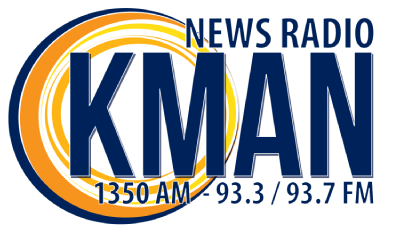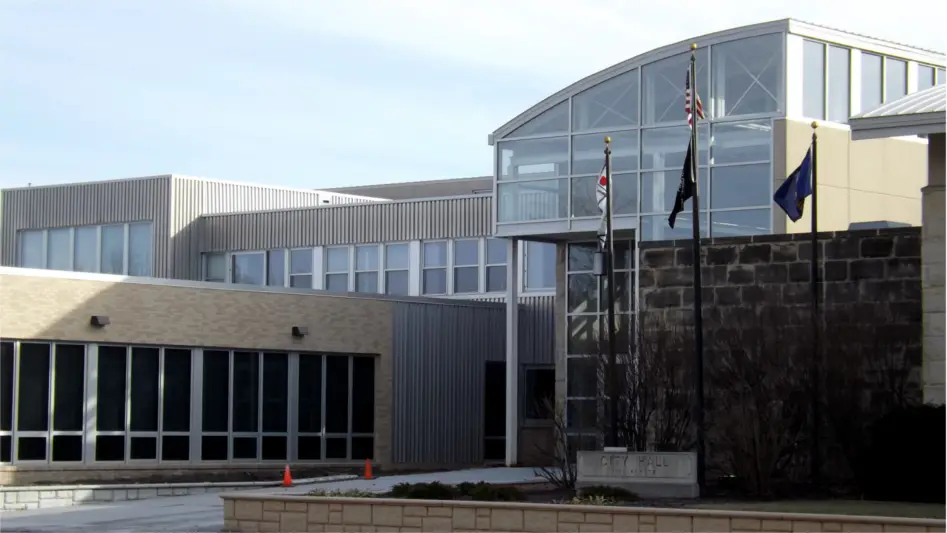The Manhattan City Commission is sending their proposed 2020 budget to publication featuring a .406 mill increase, though commissioners are pushing to see what further decreases would look like at the August 6 public hearing. By statute, published budgets can be reduced further, but not raised.
The total property tax increase is currently $757,000, though the mill levy increase only accounts for $238,000 of that — the rest is due to increases in property valuation and new revenue from new development. With no increase in property valuation, owners of homes valued at $200,000 would see a $10 annual property tax increase from the city — with a projected 1.8 percent rise in valuation that annual increased bill would be $22. That does not factor in mill increases from Riley County and USD383, which amount to a $193 annual increase plus $39 with valuation increases factored in.
A mill is a unit of measuring property taxes, one mill equates to $1 for every $1,000 of assessed property value. The value of a mill in Manhattan for 2020 is $585,000.
The 0.406 mill increase has been worked down from a 4.34 mill increase based on city department requests since the first budget work session on May 28. Multiple funding items were shifted onto sales-tax funded Economic Development money and funding for capital improvements was decreased from initial department requests of $1.38 million to about $19,000 in new equipment and $11,231 in new projects.
Mayor Mike Dodson says a .406 mill increase isn’t as good as a flat mill levy, but he thinks “the .4 is pretty good given where we started out and what all the department heads came in with as what they thought they would need.”
$472,500 of the increase will go to the Employee Benefit Fund and the proposed budget also features a 1.6 percent cost of living adjustment (COLA) and 2 percent step increase for city employee salaries.
Dodson and others again requested city administration to present information at the public hearing on what the impact to city functions, services and departments would be if they kept the mill flat.
“If this is better than zero, then I’ll happily vote for a tax increase but right now I just don’t know that,” says Commissioner Jerred McKee, who opposed the 2019 budget alongside Commissioner Wynn Butler “I’m just trusting in that process.”
Mayor Pro Tempore Usha Reddi says while she’s not happy to see a tax increase, after cuts and a hiring freeze last year she says the increase is something they can work with and that they need to continue to look at ways to grow the community and increase revenue.
“We are not in a position to get complacent right now and think we don’t have to do anything this year and everything’s going to be fine next year, that’s not how life works,” says Reddi. “We need to continue to move forward and build up our staff so they don’t use this as their training base and move on to other areas.”
Butler says there’s no reason the city cannot maintain a flat mill — especially considering the sales tax on the November ballot — and that he won’t support the budget if it exceeds the increase in property valuation.
“I think the city manager could just flat say, OK, we got this much left and just do a percentage across the board, I think there’s enough waste there if each and every department looks at it,” says Butler. “There’s things there that can be cut and I think we can shave that out of there.”
Commissioners were all also in favor of looking at potential increases to various fees in order to further offset the mill increase, projections for which show the possibility of bringing in an additional $103,000 — $79,000 to the general fund and $24,000 to the special Sunset Zoo fund. Potential increases include bumps to floodplain development fees, Parks and Rec fees, municipal court fees and implementing a schedule or down payment for open records requests. Commissioner Linda Morse cautioned to not make the fees for records too onerous.
“I want that transparency for our city,” Morse says. “We do a good job of that, but I want to be sure that we don’t limit what folks can get from us.”
Utility fees
Fees for water, wastewater and sewer services are all projected to rise in 2020, part of three and five year phase-ins of new rate structures determined by a cost of services study that found that the reserve money in the funds is falling short of recommended amounts — enough money to pay for multiple months of operations and a year of debt service to ensure the city can financially withstand a disaster impacting the plants.
2019 was year two of a three year 5 percent increases for water and wastewater. Year-to-date, water funds are $376,000 short from projections, but will still stay on a positive trend and above the recommended fund balance. The 5 percent increase will have an estimated $16.16 annual impact on average water consuming residential customers and $79.52 to the average consuming business.
The 5 percent increase for sewer service will have an estimated $20.51 annual impact on average sewer using residential customers and $109.13 to the average business users. Despite that, revenue is falling along with usage — believed to be a result of more efficient appliances — and puts the future stability of the fund in question.
Assistant Director of Public Works Randy DeWitt estimates the city needs to bring in an additional $1 million in revenue to ensure the fund has enough to be able to handle a disaster without defaulting on its debts. Some options that the city can look at when they adjust rates in later months that he presented included increasing the minimum charge rate for sewer services by $2.65 alongside a 25 cent unit charge increase on top of the five percent increase.
DeWitt says that when they adjusted rates first in 2018, most customers saw their bills decrease which is likely why the fund is in this position today. The aforementioned increases, he says, would basically put customers back on track with what rates were prior to the first adjustment.
“We took a trip to the same location, we just took a different route,” DeWitt says.
Commissioners McKee and Butler both proposed adjusting that breakdown to put more of the burden on the unit charge rather than the minimum charge rate — as an increase in the minimum charge rate affects lower users and often lower income residents more than a unit charge increase would. Morse also recommended considering altering or extending the winter quarter average period in which the city calculates a customer’s usage which drives what their bill will be in the next year.
Stormwater services are in a 5 year flattening period, and fees are generated by the amount of land on a property that is impervious to water. For every 3,625 square feet of such land on a residential unit, rates will rise from $5.82 to $6.34 — commercial rates on an equivalent amount of land will rise from $4.65 to $5.47. The two rates will be equivalent with one another at $7.55 by 2022.
City Engineer Brian Johnson says the fund is in good shape, at least until 2027 when the fund falls below the recommended balance. He says Kansas charges one of the lowest rates in the state for stormwater services and their rates are growing slower than other cities as well.
Johnson presented options to stabilize the fund down the road — acknowledging that they have multiple years to address the downturn in the out years. Some of those included adding a 6th year of flattening to increase the fund balance, increasing the 3 percent annual fee increase planned from 2022 to 2030, adding a flat monthly surcharge to each bill and/or implementing a development or connection fee for new buildings at the time they receive a building permit. Commissioners generally supported looking at those fees at a future date and bringing in more revenue for the stormwater fund in an effort to address flooding concerns around the community.


